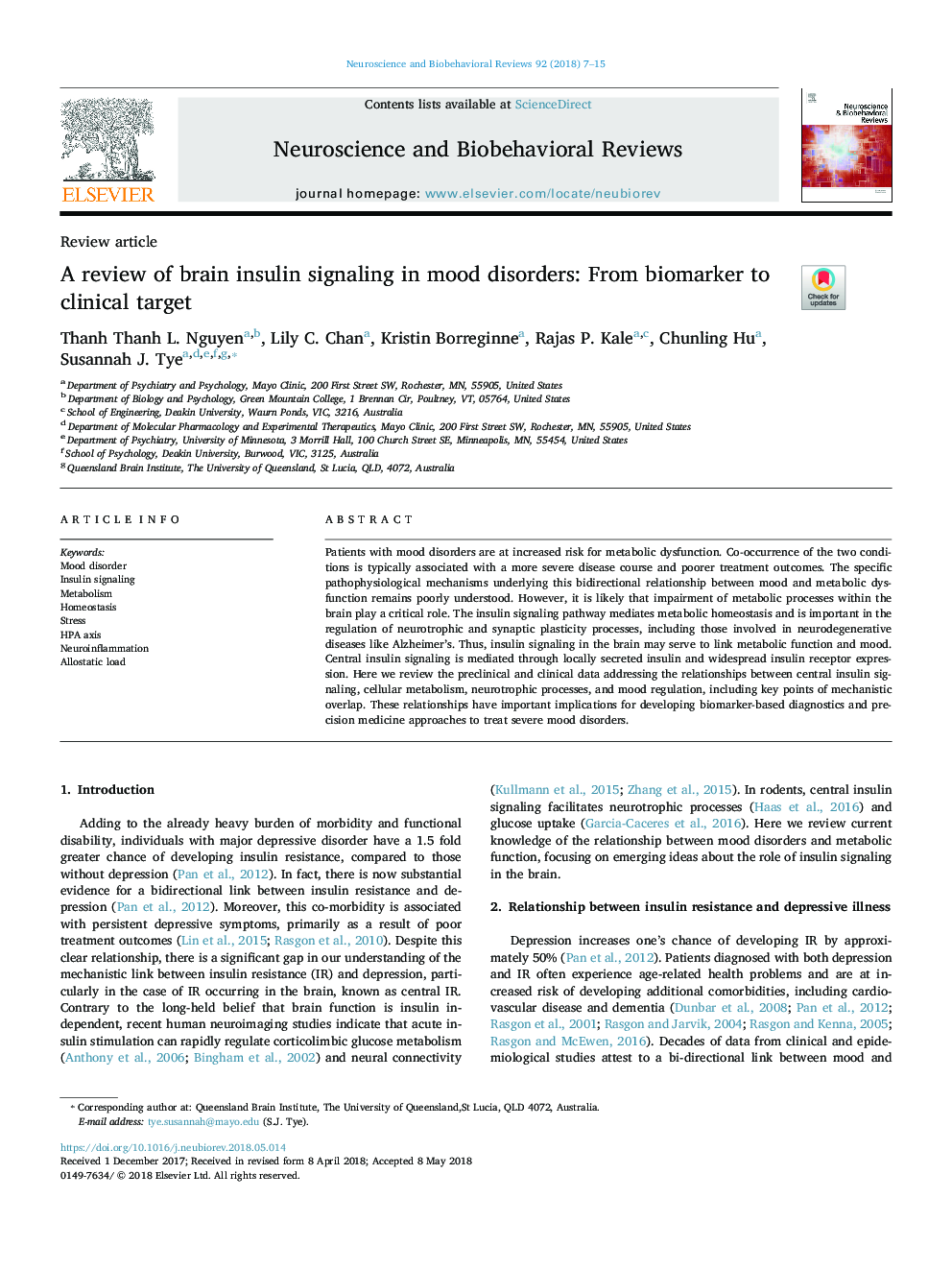| Article ID | Journal | Published Year | Pages | File Type |
|---|---|---|---|---|
| 7301509 | Neuroscience & Biobehavioral Reviews | 2018 | 9 Pages |
Abstract
Patients with mood disorders are at increased risk for metabolic dysfunction. Co-occurrence of the two conditions is typically associated with a more severe disease course and poorer treatment outcomes. The specific pathophysiological mechanisms underlying this bidirectional relationship between mood and metabolic dysfunction remains poorly understood. However, it is likely that impairment of metabolic processes within the brain play a critical role. The insulin signaling pathway mediates metabolic homeostasis and is important in the regulation of neurotrophic and synaptic plasticity processes, including those involved in neurodegenerative diseases like Alzheimer's. Thus, insulin signaling in the brain may serve to link metabolic function and mood. Central insulin signaling is mediated through locally secreted insulin and widespread insulin receptor expression. Here we review the preclinical and clinical data addressing the relationships between central insulin signaling, cellular metabolism, neurotrophic processes, and mood regulation, including key points of mechanistic overlap. These relationships have important implications for developing biomarker-based diagnostics and precision medicine approaches to treat severe mood disorders.
Keywords
Related Topics
Life Sciences
Neuroscience
Behavioral Neuroscience
Authors
Thanh Thanh L. Nguyen, Lily C. Chan, Kristin Borreginne, Rajas P. Kale, Chunling Hu, Susannah J. Tye,
